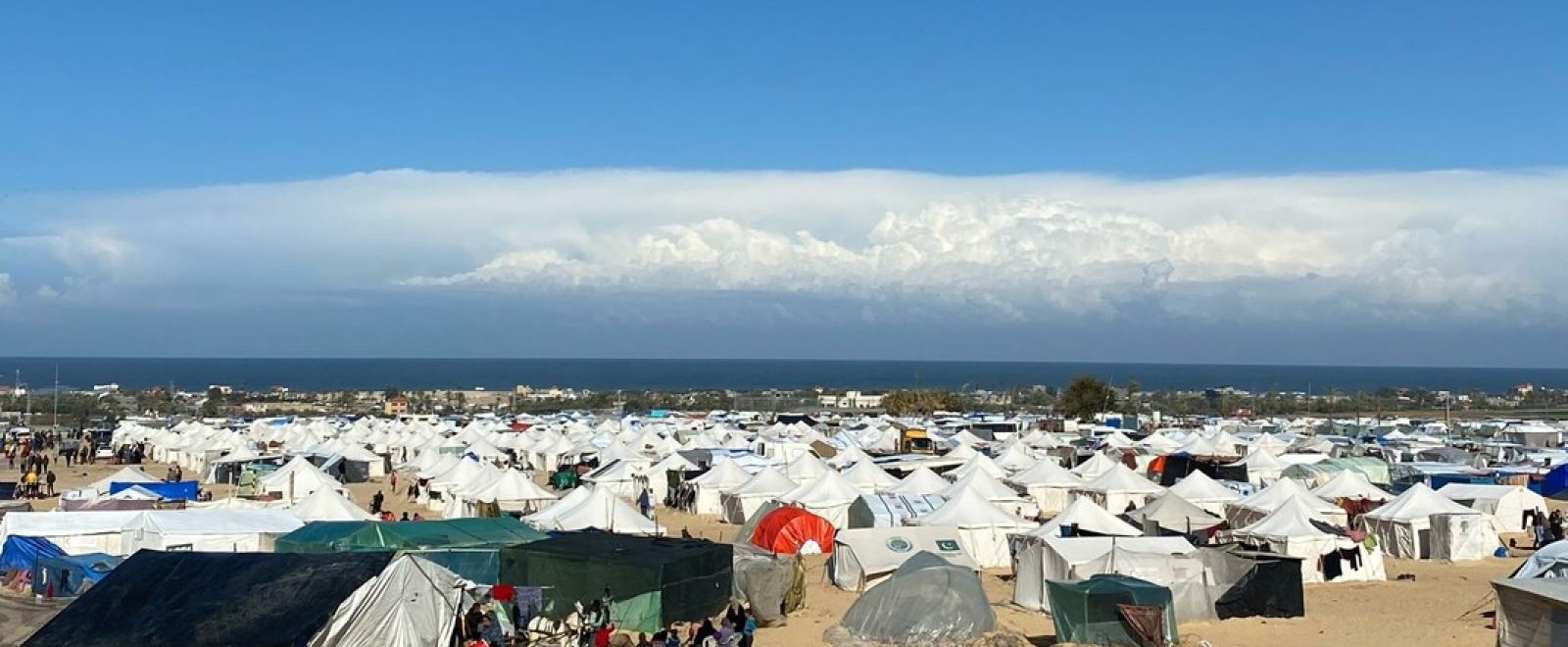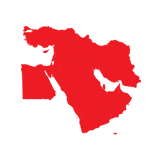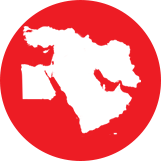Since the United Nations Relief and Works Agency (UNRWA) schools in the Gaza Strip are currently closed, many have been turned into shelters for more than 1.2 million people who have been forcibly displaced from their homes by the bombardments. Considering the recent news of some of the world’s wealthiest nations suspending funding to UNRWA, the already catastrophic humanitarian conditions that people are living in are likely to worsen.
Dr. Ibrahim, who previously worked in a UNRWA clinic in Gaza City, though now displaced in a UNRWA school, is providing medical aid to those suffering from infections, illnesses, and minor health issues. In a video testimony, he shared with us some insight into the health challenges people in the shelter are facing:
“Recently, there was an epidemic in the UNRWA schools of Hepatitis A. The source of infection is most likely from bathrooms because of overcrowding. In order to reduce the burden on UNRWA clinics, we treat cases that do not require intensive medical care, such as colds and intestinal infections, headaches.
Before Hepatitis, there was gastroenteritis; it spread so widely, even the children reached a stage of dehydration due to intestinal infections.
There were treatments, of course. UNRWA provided this medicine as a temporary solution to the problem of intestinal diseases, but the disease persists as long as the infected person lives
in a place like this and eats unclean food and drinks unclean water.”
Sawsan, a 10-year-old, echoed the struggles within the shelter. She described the despair of living in overcrowded conditions with 9,000 other people, sharing limited facilities, and grappling with a lack of medicine.
“We stand in line with approximately 50 people waiting for four bathrooms. This is not right. We should not have to live like this. There must be a permanent ceasefire, and we do not want wars again.”
Lack of water, cleaning materials, and insufficient toilets have increased the spread of diseases, forcing people to limit their food and water intake. Raneem, a 21-year-old living in another school shelter, described the dire state of the bathrooms:
“It is a major crisis: there is no water, no cleaning materials, few bathrooms, and there are a lot of people from outside the shelter coming in to use them. At night, we do not eat so as not to go to the bathroom, and we do not drink water so as not to go to the bathroom.”
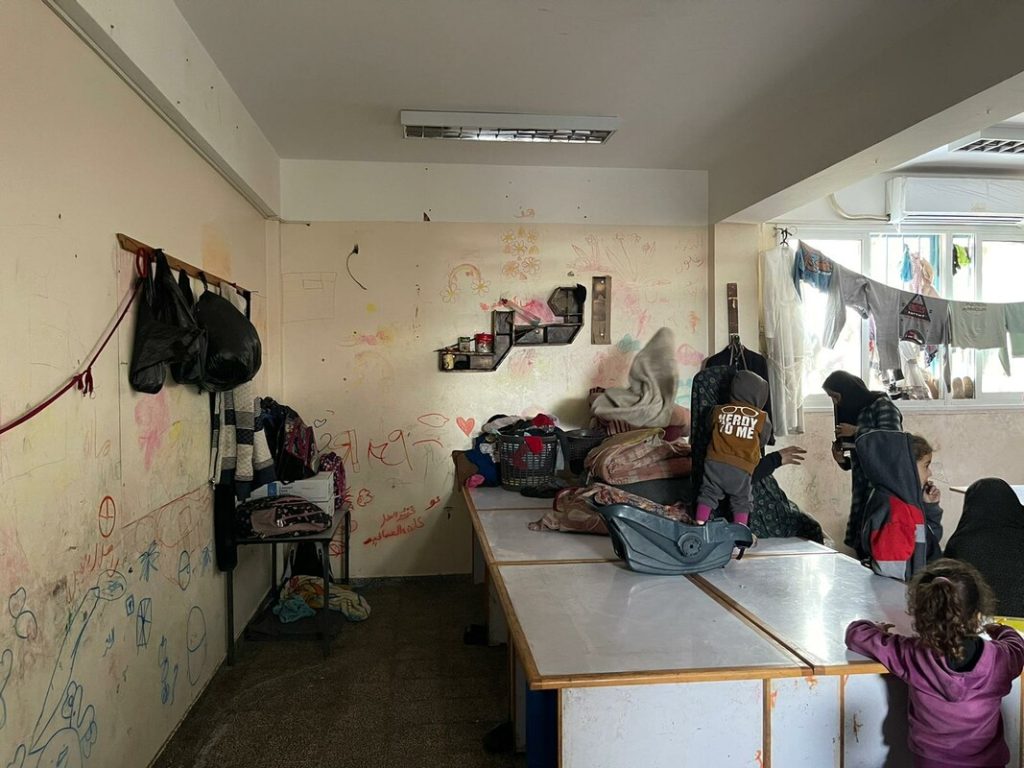
Iman, a mother of four with vision issues, told us about the unique challenges she faced in a camp for internally displaced people (IDP. Violence and displacement have robbed her of necessities, making daily life a struggle. She shared with us:
“I cannot begin to explain my feelings to you, as someone who is living a war while being visually impaired. It is very difficult for someone who is visually impaired to live in a tent.”
Noora, a 14-year-old, was forced from her home after it was bombed. She lost family members, including her grandmother and younger cousin. Her new reality is one marked by deep loss and heartbreaking pleas for normalcy, wishing to live like other children worldwide who aren’t met with violence every day. She shared:
“We do not live like other children… We do not have the freedom to complete our education. I hope that we will return to our home… [I hope] we [can] live like the other people in other countries.”
Iman, who was severely injured in attacks, is currently sheltering in a school where the conditions were far from ideal for someone with her injuries. She shared:
“I have had my right foot amputated, and I have a fracture and a [metal plate] in my left foot. There is pollution, the school is very crowded and noisy. I need suitable housing, to be in a clean place.”
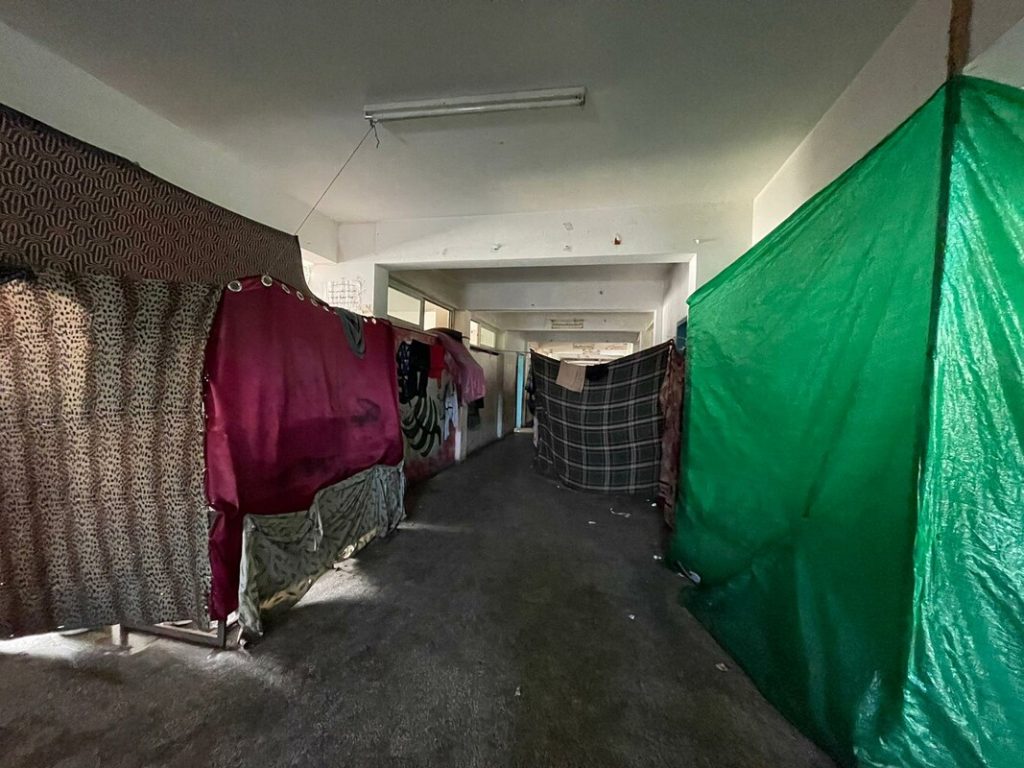
The stories of Dr. Ibrahim, Sawsan, Raneem, Iman, and Noora, weave together a vivid understanding of the dire humanitarian crisis faced by thousands of displaced people in Gaza. Overcrowding, long lines for toilets and showers, a lack of access to clean water and food, and the spread of illnesses and diseases are a daily struggle for people just trying to survive.
Each testimony serves as a plea for humanity to take notice to call for change that brings an end to the cycle of suffering that has gripped the region. ActionAid is providing emergency relief to people in these IDP camps in parts of Gaza and the West Bank. But with so many more people in desperate need of life-saving aid, an immediate and permanent ceasefire is the only answer.
